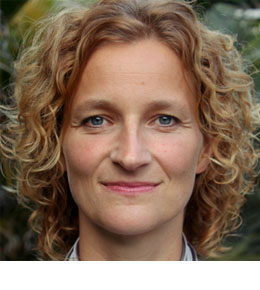

Wissenschaftliche Doktorarbeiten
The Hertie Institute for Clinical Brain Research (Dept. of Neurodegenerative Disease) and the Institute of Medical Genetics and Applied Genomics of the University of Tübingen are inviting applications for
2 PhD students, TVL E13, 65%, 3 years (extension possible) in Genomics of Rare Diseases
The Hertie Institute for Clinical Brain Research (HIH), together with the Department of Neurology, forms the Center for Neurology at the University of Tübingen. It is dedicated to basic and translational research in neurological diseases. Together with the Institute of Medical Genetics and Applied Genomics (IMGAG) of the University Hospital Tübingen, it is part of the TübingenNeuroCampus (TNC). Scientists in the more than 100 active research groups of the TNC pursue theoretical, system-neuroscientific, molecular, and clinical research approaches in their entire breadth using a wide range of methods.
The groups of Rebecca Schüle (Genomics of Rare Movement Disorders, HIH) and Stephan Ossowski
(Computational Biomedical Genomics, IMGAG) focus on genomics, pathophysiology and translational research in neurodevelopmental and neurodegenerative disorders.
We are currently inviting applications for 2 PhD positions in Genomics of Rare Diseases.
Project 1 (Bioinformatics): You will perform bioinformatic analysis on large whole genome (WGS) and RNA sequencing (RNS Seq) datasets with the aim to identify novel disease genes and mutation mechanisms causing Hereditary Spastic Paraplegia (HSP), a rare form of motoneuron disease. A particular focus of this project will be the analysis of structural DNA variation with long Nanopore sequencing reads as well as the development of new analysis strategies to interpret and prioritize non-coding variants, aided by combined WGS and RNA Seq analysis.
This position is funded by the ‘Bundesministerium für Bildung und Forschung’ (BMBF) via funding for the TreatHSP network (https://www.treathsp.net).
Project 2 (Functional Validation): You will work in cellular disease models including iPSC-derived neurons to demonstrate the pathomechanism of novel candidate mutations and pathogenic relevance of candidate disease genes. Hereby you will apply a wide range of molecular genetic, biochemical and cell biological methods. Tools we frequently use in the lab are CRISPR/Cas9 genome editing of iPSCs and other cell types. You may apply proteomics or lipidomics to determine the cellular consequences of disease-causing mutations and apply genetherapy approaches in vitro to test therapeutic strategies.
This position is funded by the European Union via funding for the Horizon2020 project Solve-RD (http://solverd.eu).
What we are looking for:
We are looking for an enthusiastic and ambitious candidate with an excellent Master’s degree in Molecular Genetics, Biochemistry, Biotechnology, Biology, Informatics/Bioinformatics or related life sciences.
What we are offering:
We offer two challenging interdisciplinary projects that are integrated into major national and European research consortia at the interface of genomics and translational medicine, well-equipped laboratories with top-notch facilities, excellent supervision in a highly collaborative international environment and affiliation with the Graduate Training Center of Neuroscience.
Both positions are available immediately. Salary will be determined according to the German collective wage agreement in public service (TVL 13, 65%), 3 years.
Application:
If you are interested in either of the two projects please send your full application including a motivation letter, your CV, transcripts, your master’s thesis and/or publications to Rebecca.schuele-freyer@uni-tuebingen.de
Bachelor- und Masterarbeiten
Wir haben häufig genetische oder zellbiologische Bachelor- oder Masterarbeiten zu vergeben. Methodisch können Sie bei uns unter anderem die Analyse von Exom- und Genomsequenzierungen, die wesentlichen molekulargenetischen und proteinbiochemischen Grundtechniken, Mikroskopie inkl. konfokaler Mikroskopie und live cell imaging, Arbeiten mit etablierten und primären Zelllinien sowie Generierung und Differenzierung humaner induzierter Stammzellen lernen. Wenn Sie Interesse haben, melden Sie sich gerne per Email (rebecca.schuele-freyeruni-tuebingen.de). Dann können wir gemeinsam überlegen, welches Projekt auf Sie passen könnte. Gerne bieten wir auch vor der Entscheidung für eine Bachelor- oder Masterarbeit ein „Schnupperpraktikum“ an, damit wir uns gegenseitig kennenlernen können.
Medizinische Doktorarbeiten
Wir haben häufig klinische oder kombiniert klinisch-genetische medizinische Doktorarbeiten zu vergeben. Wenn Sie Interesse haben, melden Sie sich gerne per Email (rebecca.schuele-freyeruni-tuebingen.de). Wir können dann gemeinsam überlegen, welches Projekt auf Sie passen könnte. Gerne bieten wir auch vor der Entscheidung für eine Doktorarbeit ein „Schnupperpraktikum“ an, damit wir uns gegenseitig kennenlernen können.

Zentrum für Neurologie
Hertie-Institut für klinische Hirnforschung
Abteilung Neurologie mit Schwerpunkt neurodegenerative Erkrankungen
Otfried-Müller-Straße 27
72076 Tübingen
Tel.: +49 (0)7071 29-82057



